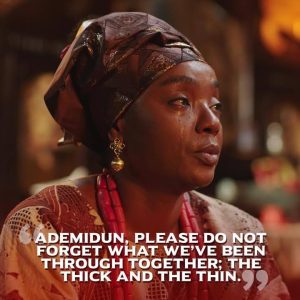WHY THE ATTACK ON DR. RUBEN ABATI?
By: Chibuike Uloka
Op’ed: The popular news broadcaster, co-anchor of the Arise Morning Show, and former presidential spokesman, the fine and cerebral Dr. Ruben Abati, has come under fire and provoked the anger of many on social media with his recent statement, made live on the Arise Morning Show. He asserted that Igbos do not sell land to those perceived as outsiders.
Dr. Abati further referenced a former Minister of Information who married an Igbo wife and reportedly wanted to build a house for his wife and daughter in his in-laws’ ụmụnna but was informed that he was not allowed to buy land there.
For me, this is not necessarily enough reason to pounce on Dr. Ruben Abati and hurl insults at him. With all due respect, Dr. Abati is a veteran journalist who has contributed immensely to Nigeria through his journalistic works and should be accorded respect. Rather than resort to abuse, Dr. Abati should be educated about the Igbo culture to help correct his single story.
It was Chimamanda Ngozi Adichie who spoke about the dangers of a single story. In her famous TED Talk at TEDGlobal in 2009, she stated: “The single story creates stereotypes, and the problem with stereotypes is not that they are untrue, but that they are incomplete. They make one story become the only story.”
Dr. Abati’s assertion about the Igbos being industrious and settling anywhere in the world, while claiming that they paradoxically do not allow others to purchase their ụmụnna land, is a single story. Such a narrative should not be allowed to stand unchallenged. Rather than attack him, we should seize the opportunity to tell the other side of the story and educate Dr. Abati—and others like him—about the Igbo culture.
The Igbos are among the most hospitable people in Nigeria today and, by extension, Africa. If we were not, it would be rare to find Igbos willing to settle freely in other parts of the country or the world. You cannot demand what you are not willing to give. However, like every ethnicity, the Igbos have their own culture, way of life, and beliefs.
In line with Igbo culture and beliefs, certain lands are, by default, not sellable because they are generational inheritances meant for specific heirs of each generation. Such lands are called Ani Obi (this term may have variations depending on dialect, but the concept is the same across the Igbo-speaking region). These lands are inherited and passed down to the firstborn male of the family to preserve the family name, legacy, and reverence. They are protected by the ụmụnna and bound by laws that prohibit their transfer—whether as gifts or sales—to prevent outsiders from inheriting spirits and family ancestors with whom they have no connection.
Apart from ụmụnna land, which is directly transferred to family members and cannot be resold, there is no part of Igbo land today where foreigners do not own property for residential or business purposes. In both Onitsha and Aba, the two prominent commercial nerve centers of the Southeast, a large percentage of the population comprises non-Igbos who own the lands where they built their businesses or residences.
In my Ogbunike community, which hosts the popular building materials market and other international markets, I can count dozens of non-indigenes who have permanently settled through land purchases. This trend is consistent across the Southeast. Numerous real estate companies in the region purchase lands from communities, develop them, and resell them. These developments are not restricted to Igbo buyers; many non-Igbos own and occupy these properties.
I believe it is a stereotype to claim that the Igbos do not sell land to outsiders. What is true, however, is that, in line with our conservative African beliefs, certain portions of land—specifically ụmụnna land, which represents history, spirituality, and family heritage—cannot be transferred to non-members. This is likely the type of land referenced in Dr. Abati’s example involving the late minister, where purchasing such land for his wife and daughter would have been contrary to Igbo cultural beliefs.
It is untrue to generalize that Igbos do not sell land to outsiders. Moreover, an in-law is never considered an outsider in Igbo land. Like every culture, Igbo customs have restrictions to preserve family history and spiritual significance. Lands belonging to the ụmụnna are not transferable to non-members to ensure the family legacy is upheld and spiritual responsibilities are maintained.
Culture is a people’s way of life, and Achebe, in Things Fall Apart, depicted the dangers of losing cultural identity. When outsiders—who lack an understanding of a people’s history and spirituality—are allowed to disrupt communal bonds, it can lead to the disintegration of that community, as was the case with the Umuofia clan in Achebe’s story.
Let us educate, not vilify.
Chibuike Uloka is a PR expert, public policy analyst and communicator.





